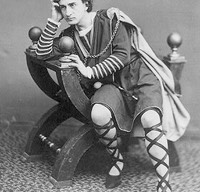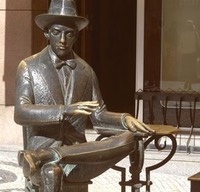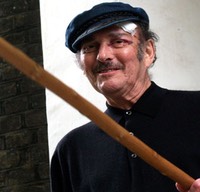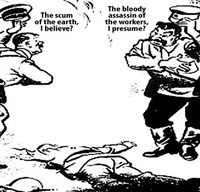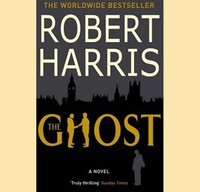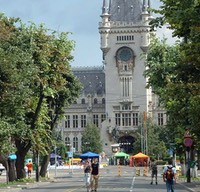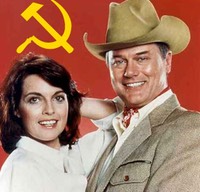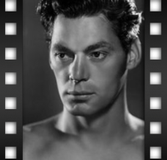Feature
Two sons of Timisoara
By Vivid writer: Christopher Lawson
Vivid profiles the lives of two cultural icons who, without ever speaking a word of Romanian, vie for the title of Timisoara's greatest son
Posted: 08/06/2007
Two fallible men from the Banat, born in different centuries, neither of whom is recorded as having spoken a single word of Romanian, vie with each other for the title of Timisoara's greatest son.
Both went to America, to discover that the promised land brought mixed blessings. In their rise to prominence, one as the silver screen's aquatic lord of the jungle, one as a lyric poet, each moved among the glitterati of their time. Both had trouble with the censors. One married five times. The other was tormented by a series of unhappy love affairs. Neither possessed business skills. Both died lonely deaths.
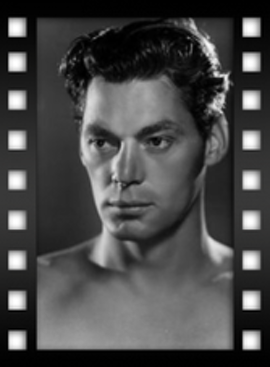
In his day, Johnny Weismuller was the world's most famous swimmer who went on to become an icon in the early days of television
In 1904, the Weissmuller family, which had Catholic and Jewish origins, entered the name of the future Tarzan as Janos. All legal records at that time required the Hungarian form of the name. His parents called him Johann. Under this name he was registered on arrival in New York. Young Weissmuller became known as Johnny as soon as he found fame as an Olympic swimmer.
Nikolaus Lenau, born in 1802, was the pen name of Nikolaus Niembsch Edler von Strehlenau. His family of army officers originated from Prussia and Silesia. Lenau's father, a dissolute gambler, died when he was five.
Johnny Weissmuller dropped out of high school to become a champion swimmer and an international movie star. He learned how to swim in the polluted, debris-strewn, waters of Lake Michigan, developing his distinctive, revolutionary, high-riding front crawl.
Lenau had no systematic education during his nomadic childhood. From his father who married his mother in a shotgun wedding, he seems to have inherited a pathological sensuality, mental and physical instability, and a lack of willpower, from his mother depression and hypochondria.
From 1821 to 1831, he studied law, agriculture and medicine in Vienna, Sopron and Bratislava, restlessly criss-crossing the Austro-Hungarian Empire, without ever completing a course. These ten years of restless wandering came to symbolise his lifestyle. His intense melancholy was to drive him mad. The vast and solitary Hungarian puszta (eng: steppe) gave him his first experience of nature.
Johnny emigrated to America at seven months old, a babe in arms, arriving with his family on the S.S. Rotterdam in New York on 26th January 1905. Lenau landed in Chesapeake Bay on 8th October 8 1832, after a sea voyage of two and a half months, marred by storms and bad food. Disembarking at Baltimore, he settled on a homestead in Ohio, determined to seek peace, freedom and a new world of poetry in the New World.
But Lenau, now 30, had never intended to emigrate. He went there to invest in property he could lease out. His real motive was less to escape monarchist repression than to make a profit from land-dealing. He bought land in Crawford County for 3,000 guilders, entrusting the purchase to his servant Philipp Huber. Only in 1847, after Huber's death, did he receive capital and interest. By this time he had already been mad for three years.
The critic who castigated America for being in the toils of an avaricious materialism had gone there to cash in for himself. But he fell ill and lost money on his land speculation deals. Although the Niagara Falls, Indian tribes, and riding through the Urwald (the primeval forest) unleashed his imagination, the reality of life in the New World fell lamentably short of the ideal he had pictured.
Reflecting the anti-American feelings of his time, he saw Bodenlosigkeit (eng: rootlessness) in the general character of all American institutions. There was no community in America, no sense of Fatherand, no real Volk. America's culture "had in no sense come up organically from within." There was only a dull materialism and a lack of poetry. "The American knows nothing; he seeks nothing but money; he has no ideas." America was "the true land of the end, the outer edge of man."
Lenau found everything wrong, from American beds and the climate which gave him rheumatism, to the American government. To his brother-in-law he wrote, "I have not seen here a courageous dog, a fiery horse, or a man full of passion. Nature is terribly languid." In the now discredited degeneration theory current at the time, Nature, indeed all living things in America, was inferior to nature in Europe. "These Americans are petty-minded, dead as doornails to all intellectual life". He mocked the country as a land bereft of ideas and meaning.
In his most celebrated phrase, America was a land without wine, without nightingales, indeed without songbirds at all. These shortcomings epitomised its spiritual poverty. And yet Lenau had captured birds in Europe to keep them as pets. The line about the absence of nightingales influenced his contemporaries in their view of America. After a thoroughly unsatisfactory year, in 1833 he returned to Stuttgart, where his first volume of poems had been well received. For the 17 years remaining to him he lived partly in Stuttgart and partly in Vienna. Lenau, born Hungarian, Austrian by adoption and German by affiliation, had too many nationalities to feel at home in any.
As a young man and until the day he died, Weissmuller, in order to embrace fully America and the American dream, denied his Central European origins. Exchanging identities with his American brother, he disguised his once Hungarian, now Romanian, origins, and his place and date of birth in order to qualify for the US Olympic swimming team and to obtain a US passport. He won five Olympic gold medals, a host of other awards and retired undefeated from his amateur career.
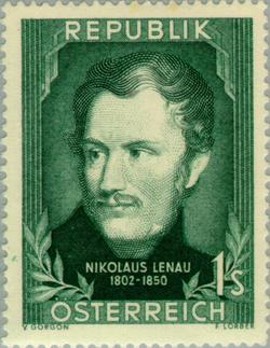
Nikolaus Lenau wrote to his brother that, 'The American knows nothing; he seeks nothing but money; he has no ideas.' America was 'the true land of the end, the outer edge of man.'
Lenau wrote during the stifling post-Napoleonic Biedermeyer period of 1815-1840. Prince Metternich, master of Realpolitik, acted as Austrian prime minister under the iron-fisted, counterrevolutionary rule of Emperor Franz, a petty tyrant, and his feeble-minded successor, Ferdinand the Benign. Meeting halls and coffee houses were closed; for inspiration, writers were driven into their private selves, towards their close and reliable friends and to Nature. Lenau's poetry mirrors the pessimism of his time and his own personal despair.
Haunted by the gnawing feeling of Weltschmerz, that irreconcilable conflict of temperament and environment, and his own demons, Lenau's poems are packed with the desolate images of nature that depict the loneliness, disillusionment, and loss which ravaged his unstable mind. For him the rose had no fragrance, the sunlight no warmth, springtime no charms. He selected for poetic treatment only those aspects of nature which might serve to intensify the expression of his grief. Lenau saw in nature only the seasons and phenomena of dissolution and decay. Thus, in Herbstlied (eng: Autumn song), the sunset is represented as a dying of the sun, the leaves fall sobbing from the trees, the clouds are dissolved in tears, the wind is described as a murderer. Lenau explains nature in human terms.
Predominantly a lyric poet, he was also inspired by historical and mythical figures such as Faust, who confronted an absurd life devoid of absolute values, and Savanorola, who stressed that freedom from political and intellectual tyranny made up an essential part of Christianity. He used many Romantic archetypes: the wanderer, the notion that "above every joy there hovers a threatening vulture," the pervasive 19th century melancholy, the restless striving for an ultimate justice beyond human reach, and the belief that nature mirrors human woes.
Weissmuller flourished during 1932-1948, the Depresion, world war two and Hollywood's first golden age. He never actually said: "Me Tarzan, you Jane", but disliked the monosyllabic dialogue he was given "Ungawa", his main utterance, could mean anything at all. Of his acting ability, he was not in the same league as Edward G. Robinson, another Romanian-born Hollywood icon. Weismuller had no control over the part, but the Tarzan he played was far from Edgar Rice Burrough's multilingual, erudite creation, who spoke English, French, German, Swahili and Arabic. Yet Weissmuller's Tarzan struck a chord with audiences from the start.
His films certainly contibuted to raising morale and providing escapist entertainment in the United States and round the world during the Depression years, and later during the war effort. Mikhail Gorbachev and Queen Elizabeth II have said they remember them. The Tarzan yell was broadcast on the battlefront.
Both men moved easily among their peers, poets in one case, movie stars in another. In Vienna, Lenau, assisted by his courtly bearing, poetic temperament and virtuosity on the violin and guitar, was made welcome in the literary salons of his time. He knew the tragic dramatist Franz Grillparzer and the farceur Ferdinand Raimund, who wrote romantic magical fantasies for the stage. In Stuttgart he was a frequent guest of the great figures of the Swabian school, the poet-politician Ludwig Uhland and Justinus Kerner, the poet and medical writer.
Weissmuller, racing his yacht against Errol Flynn and Bogart, golfing with Bob Hope and Bing Crosby, had John Wayne and Raoul Walsh as neighbours and friends. Joe Louis and Robert Mitchum dropped by regularly. He did his bit for the war effort by teaching navy recruits how to swim in water covered in burning petroleum. A hopeless businessman, he invested unsuccessfully in buildings, golf courses, beach clubs, and a frozen meat business.
The poet lived off a small legacy from his grandmother, and progressed from one unsatisfactory love affair to the next, alternatively suffering from exaltation and dejection, guilt and lost innocence, pouring out the intensity of his devotion in endless letters.
The movie star married five times. Sixty years after his Olympic triumphs in Paris, the screen Tarzan died, lonely and broken, in Acapulco. He was laid to rest in a simple cemetery plot of the Panteón Valle de la Luz (Valley of the Light). At Weissmuller's request, the Tarzan yell was played as the coffin was lowered into he ground.
President Reagan sent a telegram. John Gavin, actor and US ambassador to Mexico, represented his country officially. Linda Christian, the actress who played opposite him and José Estrada, one of Johnny's stunt doubles in the film, were the only Hollywood personalities present. Senator Ted Kennedy managed to arrange a 21-gun salute by the Marines, normally reserved for presidents or heads of state.
In true Romantic fashion Lenau succumbed in 1850 to the tertiary phase of syphilis, general paralysis of the insane, in Oberdoebling near Vienna. The 1848 revolutions, which he probably never noticed, passed him by. He had been mad for six years. He is buried by a stream in Weidling, which flows into the Danube, which in its turn flows onwards into Hungary and Romania.
Weismuller, who lied about his place of birth until his death, is now considered a great Romanian. He made 12 Tarzan and 16 Jungle Jim movies. As Tarzan, he appeared on a Romanian postage stamp last year. His son was able to visit Romania to celebrate Johnny's 100th birthday in 2004, before he himself died of lung cancer last year.
In a way the 'rivalry' between the two men is already settled. Lenau's birthplace Csatád, was rebaptized Lenauheim in 1926. A dozen streets in Germany and Austria have his name. A gymnasium in Timisoara is named after him. Austria created an International Lenau Prize. Winners in recent years have included Claudio Magris, chronicler of the Danube, Julian Barnes, interpreter of France and French culture and the distinguished polymath Umberto Eco.
Weissmuller leaves behind his swimming legacy, a string of forgettable movies and his famous ululating yell, Lenau his innately musical lyrics, set to music for generations to come by Schubert, Mendelsohn, Mahler, Liszt and Richard Strauss. A sensitive and passionate poet with a mastery of language, Lenau understood the ephemeral nature of life. He stood for justice and understanding of human suffering. A literary warrior for freedom and humanity, he fought against the misuse of power, the persecution of the innocent and religious fanaticism. In 1831, in Heidelberg and Weinsberg, before he took ship to America, he met a number of the thousands of Polish exiles who had fled Warsaw after their failed uprising against Russia. His Polenlieder collection is devoted to their struggle. Lenau's ghost still rides across the puszta. In the 21st century, Austria's greatest 19th century poet seems a suitable representative of Romania's most tolerant city.
